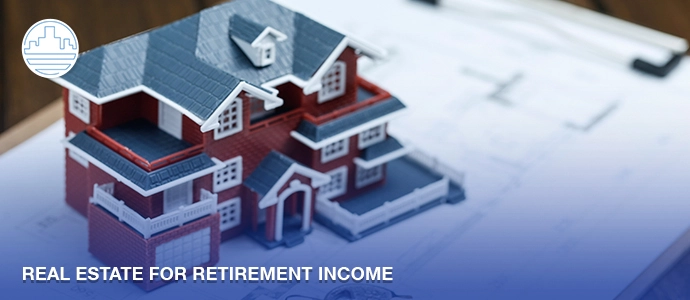
Rental properties are no doubt a great way to ensure a comfortable retirement, and for good reason – they prove to be a predictable and steady source of income. Besides, they also have several tax advantages and benefits for the retiree. Smart investors often wonder about how many properties they will need to invest in to have a secure retirement. While there is no fixed answer, a careful analysis can help you figure out the magic number.
Properties Required To Rent Out To Have A Secure Retirement
If you plan on retiring and living solely off rental income, you need to follow a simple formula before buying multiple rental properties. The formula is:
The monthly amount you’ll need for a comfortable retirement ÷ Income per rental property = Number of rental properties you should own
For example, if you want to earn $50,000 per month, and the average income per rental property is $8000, then you’ll have to own approximately 6 rental properties.
Please note that you will also need to consider the expenses. Your actual cash flow will be calculated as
Cash flow = Income – Expenses
The expenses will mainly include taxes, property maintenance costs, mortgage, and interest rates, etc. You will also have to factor in the rare occasions when your property might remain vacant.
Tips On How To Own Multiple Properties For A Sheltered Retirement
Now that you have figured out the number of properties you need to buy, let’s find out how you can go about owning multiple rental properties.
Tip 1: Buy Below Market Value
Research your market well and search for properties that are available at lower prices. Residential and commercial properties that have been on the market for too long and foreclosed homes are your best bet.
Tip 2: Loan
Since this property will purely be for investment, remember that you won’t qualify for some loan products such as FHA and USDA. These are only available to homebuyers who intend to stay on the property.
Tip 3: Avoid Making Emotional Decisions
When investing in rental properties, stay calm, level-headed, and unbiased. Even if a property looks good and feels great, you need to study the market before investing in it. The last thing you want to do is to buy a ‘cute’ looking property only to realize that you are losing money on it.
Tip 4: Sell!
While the end goal is to own as many properties as possible, you shouldn’t shy away from selling them as well. There might be times where a particular property of yours is underperforming. In such a case, selling it will make more sense. You can use the money from this sale to reinvest in another, high-performing property.
Tip 5: Protect Your Investments
Protecting your rental properties and getting them covered against unforeseen events and accidents is always a good idea. You can even consider Landlord Insurance for this.
How To Decide Which Properties To Buy
Now that you know how to get into rental properties, you will need to figure out which properties to invest in. For this, you’ll have to consider factors such as:
- Type of property – residential or commercial
- If residential, which one – Condo or apartment or bungalow, or ranch style home
- If commercial, which one – Office or retail or industrial unit, or hotel
- The cost of the property
- The location of the property
- And the average rental income in the location
Ideally, you should invest in a property that can give the highest return on investment, regardless of its type. If the location of the property is far and you can’t travel often, but the ROI is good, you can always consider hiring a property management firm that can do the work for you.
Since everyone’s retirement goals are different, predicting when you can retire is difficult. However, buying properties is the best type of investment because, not only do they start providing cash flow immediately, but the benefits are also multigenerational and can extend beyond your own lifetime.
This article primarily shared the basics of how many rental properties you need to retire. If you want experts to manage your properties while you work on growing your investment portfolio, we’ve got you covered. We at Beach Front Property Management strive to help you maximize your returns and minimize your stress. Leave your property management hassles to us and move towards a happy retirement.
Learn more about how we can help. Customized solutions for large portfolios!
